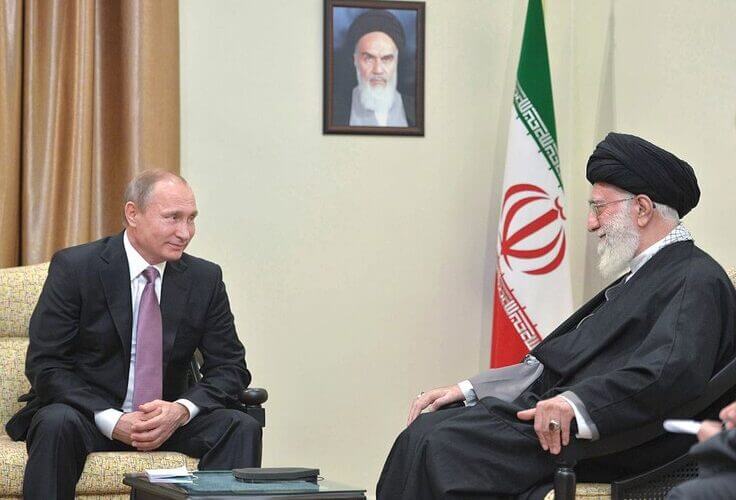While the international community sanctions and isolates Russia for its invasion into Ukraine, Russia’s role in the negotiations for the Iran nuclear deal have brought to light new incentives for Moscow including allowing them to buy Tehran’s excess enriched uranium.
In the original 2015 Joint Comprehensive Plan of Action (JCPOA) created under the Obama administration, Moscow agreed to buy Tehran’s excess of uranium to prevent the mullahs from building a nuclear warhead.
However, with Russia’s aggressive invasion into Ukraine and the outcry it has faced from the international community, many analysts are pointing out that Moscow should not have any role in the nuclear deal and that it is simply untrustworthy.
Officials and spokespeople in the State Department indicated that they would be willing to accept Russia's position to pay for highly enriched uranium from Iran to get out of the hands of the mullahs so that the regime could not obtain any nuclear warhead.
In the past several days, Biden Administration National Security officials argued that having Russia purchase Iran’s excess uranium was critical to contain Iran’s nuclear ambitions. While officials have also stressed that relying on one country for any specific part of the agreement is nonessential, Russia’s past role had a practical value.
Now, with Vladimir Putin’s regime launching a full-scale invasion into Ukraine, members of Congress on the Democrat and Republican spectrum have criticized Russia’s role in the new deal. Politicians believe that the Iran nuclear deal would create a pathway for Iran to obtain a nuclear weapon, generating billions and billions of dollars in sanctions relief used to support its terrorist proxies in the Middle East.
These same politicians also point out that Russia would be able to reap the numerous benefits offered in the nuclear agreement, allowing them to bypass international sanctions and funnel Putin's government while the international community is sanctioning Russia's aggressive actions in Ukraine.
Other foreign policy and national security analysts have also pointed out the main issue relies on Iran. According to recent and past reports, the Iranian regime increased its stockpile of 60 percent enriched uranium to 25 kilograms in November of 2021, creating an international uproar.
If Russia is allowed to buy Iran’s enriched uranium, this would not only help Moscow evade international sanctions but allow Iranian officials to have a method of obtaining revenues needed to support its terrorist proxies.
Bryan E. Leib, Executive Director of the Iranian Americans for Liberty group, argues that the recent continued acts of aggression by the Islamic Regime “show us that they can't be trusted and that their ultimate goal is the destruction of the West and its allies.”
Leib calls on President Biden's administration to “pivot away from diplomacy with the Iranian regime and a new strategy that aligns U.S. support behind the Iranian people, not their oppressive government.”
Leib argues that ever since the inception of the Islamic Regime in 1979, the mullahs have never faltered in seeking nuclear weapons of mass destruction while also making threats against America and its allies.









